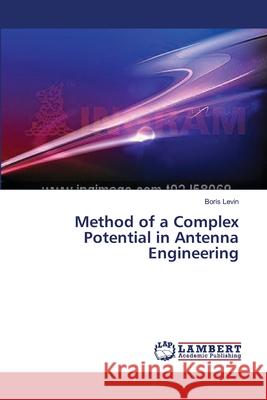Method of a Complex Potential in Antenna Engineering » książka
Method of a Complex Potential in Antenna Engineering
ISBN-13: 9783659562297 / Angielski / Miękka / 2014 / 192 str.
In the offered book the method of a complex potential is generalized, firstly, to piecewise homogeneous media and, secondly, to three-dimensional structures. Three-dimensional conic and parabolic problems are reduced to two-dimensional (cylindrical) one, and the metal bodies' coordinates in these problems are connected with simple equalities. That permits to propose the general theory of flat and volume complementary and self-complementary antennas and to develop the procedure of calculating these antennas and also antennas located on the pyramid sides. In the book concrete problems are considered. The use of parabolic coordinates' system permits to compare fields created by the same antenna in the phantoms of different shape and dimensions. The methods of decreasing lateral and longitudinal dimensions of log-periodic dipole antennas and also new log-periodic monopole antennas are described. Numerical and approximate methods of calculating capacity between two coaxial cylindrical spirals of identical radius, wounding in opposite directions, are considered.
In the offered book the method of a complex potential is generalized, firstly, to piecewise homogeneous media and, secondly, to three-dimensional structures. Three-dimensional conic and parabolic problems are reduced to two-dimensional (cylindrical) one, and the metal bodies coordinates in these problems are connected with simple equalities. That permits to propose the general theory of flat and volume complementary and self-complementary antennas and to develop the procedure of calculating these antennas and also antennas located on the pyramid sides. In the book concrete problems are considered. The use of parabolic coordinates system permits to compare fields created by the same antenna in the phantoms of different shape and dimensions. The methods of decreasing lateral and longitudinal dimensions of log-periodic dipole antennas and also new log-periodic monopole antennas are described. Numerical and approximate methods of calculating capacity between two coaxial cylindrical spirals of identical radius, wounding in opposite directions, are considered.











